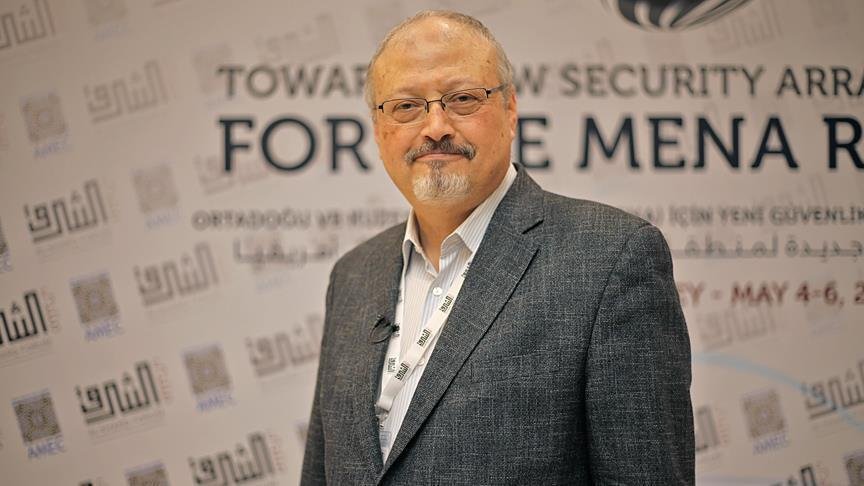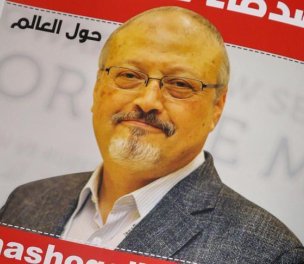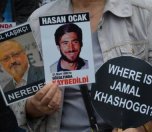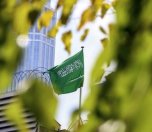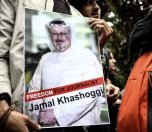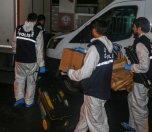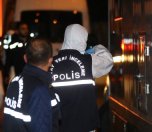Click to read the article in Turkish
UN human rights rapporteur Agnes Callamard yesterday (December 26) condemned a Saudi court's death sentences over the 2018 killing of the journalist Jamal Khashoggi in the kingdom's consulate in İstanbul following a secretive trial which she called the "antithesis of justice."
"The executioners were found guilty and sentenced to death. Opposed to the death sentence, this is a first shock to me," Agnes Callamard, the UN Special Rapporteur on extrajudicial, summary or arbitrary killings, said in a statement.
CLICK - Ministry of Foreign Affairs, Presidency Slam Khashoggi Verdict
Callamard went on saying: "However, those who ordered the executions not only walk free but have barely been touched by the investigation and the trial. This is the second shock."
Khashoggi, a contributor to the Washington Post, was killed on October 2, 2018.
The UN expert described the legal process for the Khashoggi murder as "the antithesis of justice and an unacceptable lack of respect to the victims."
'Saudi Arabia should be held responsible'
She said that under the international human rights law, Khashoggi's killing was an extrajudicial execution for which Saudi Arabia should be held responsible.
"This case demands an investigation into the chain of command to identify the masterminds, as well as those who incited, allowed, or turned a blind eye to the murder, such as the Crown Prince," said Callamard.
She noted that the trial failed to consider the responsibilities of the state.
"The 18 Saudi officials, present on their own in the Saudi Consulate in Istanbul for more than 10 days, cleaned up the crime scene. This is obstruction of justice and a violation of the Minnesota Protocol for the investigation of arbitrary killings," said the UN expert.
CLICK - Prince Salman Denies Ordering Khashoggi Murder, Erdoğan Blames 'Saudi Shadow State'
'The killing was clearly planned'
Callamard also said that the presence of a forensic doctor in the official killing team at least 24 hours before the crime, and discussing the dismemberment of Khashoggi two hours before it occurred "also clearly indicates the killing was planned."
The judge, she said, engaged in clear violation of international law by concluding that there was no intent in the killing, but sentenced the defendants to the death penalty.
She also noted that the defendants had repeatedly stated during the hearings that they were obeying orders.
What happened?Journalist Khashoggi disappeared after entering the Consulate General of Saudi Arabia in Beşiktaş, İstanbul on October 2, 2018. The Kingdom of Saudi Arabia officially confirmed on October 20 that the journalist was killed inside the consulate. The İstanbul Chief Public Prosecutor's Office released a press statement on October 31, giving the following information: "Jamal Khashoggi went to the Consulate General of the Kingdom of Saudi Arabia for paperwork related to his marriage on October 2, 2018. As soon as he entered the consulate building, in a premeditated murder, he was suffocated to death and his body was dismembered and destroyed." About Jamal Khashoggi
Journalist and writer Jamal Khashoggi is known for his opposing views about the Crown Prince of Saudi Arabia Mohammed bin Salman and he has been writing at the Washington Post about this issue. After he expressed his criticisms about the reforms introduced by bin Salman and drew reactions, he left Saudi Arabia in 2017 and moved to the US. He worked as Director-General and Editor-in-Chief at the Al Arab Media Group. He was also a media consultant at the Saudi Arabia Embassy in England. |
(EKN/VK)





